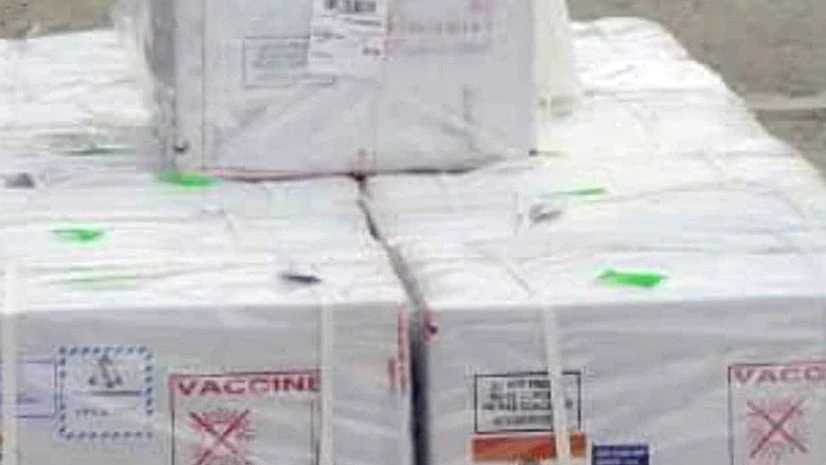The first phase of Covid-19 vaccination drive kicked off in Nepal on Wednesday.
According to the health officials, the coronavirus has so far killed 2,017 people and infected 270,092 across the country.
Prime Minister K.P. Sharma Oli rolled out the programme while reading out the message of President Bidhya Devi Bhandari.
A total of 430,000 frontline health workers, supporting staffers at health facilities, female community health volunteers, security personnel, sanitation workers, elderly people living in care homes and prisoners will be administered the vaccine shots in 65 districts across the country, said Nepal's Ministry of Health and Population.
India has handed over one million doses of Oxford-AstraZeneca's Covishield vaccine manufactured by the Serum Institute of India (SII), to Nepal under grant assistance in sync with its 'Neighbourhood First' policy.
Health Minister Hridesh Tripathi said that the first phase of immunisation camping will be completed within 10 days.
More From This Section
However, the inoculation programme couldn't be rolled out in some distrcits which are yet to receive their consignment of the vaccines.
Over 600 health workers have been trained to run the vaccination drive, while booths with the capacity to immunise 200 people have been set up at the immunisation centres.
The number of people to be vaccinated is less than 1.5 per cent of the total population. Even after the first phase, around 70.5 per cent of the population will not be inoculated, the health ministry said.
Public health experts feel that the rollout of the vaccination drive by prioritising the frontline workers in the first round is a positive step.
As authorities concerned have already given up on all preventive measures, including testing, contact tracing, and strict enforcement of the safety measures, vaccination is only the way to curb the infection spread as well as possible fatalities, doctors said.
Meanwhile, the Nepal government has said that it is committed to immunise 72 per cent of the total population. The vaccine cannot be administered to children under 14 years of age, who accounts 28 per cent of the population in the country.
After the frontline workers, people above 55 years of age, people between 40 and 55 years of age and he remaining population will be administered the vaccine shots in the subsequent phases.
--IANS
str/sdr/
(Only the headline and picture of this report may have been reworked by the Business Standard staff; the rest of the content is auto-generated from a syndicated feed.)

)
